Hyperkalemia
Get Dexur’s Personalized Hospital Specific Presentation on Quality, Safety, Compliance & Education
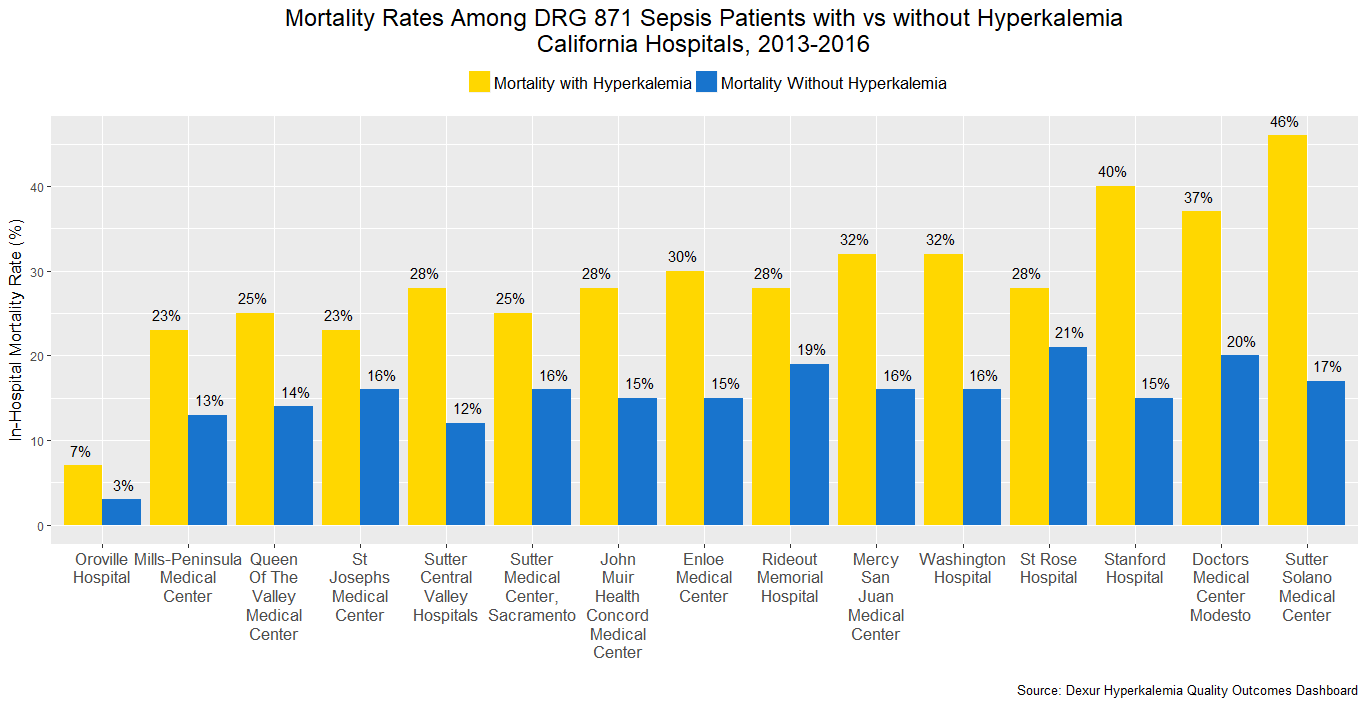
By: James Pitt Jul. 03, 2018
Hyperkalemia, i.e. high potassium, is a common electrolyte imbalance. Like other forms of fluid imbalance, it may affect sepsis outcomes. Dexur has extensively reported on fluid imbalance in sepsis.
Read more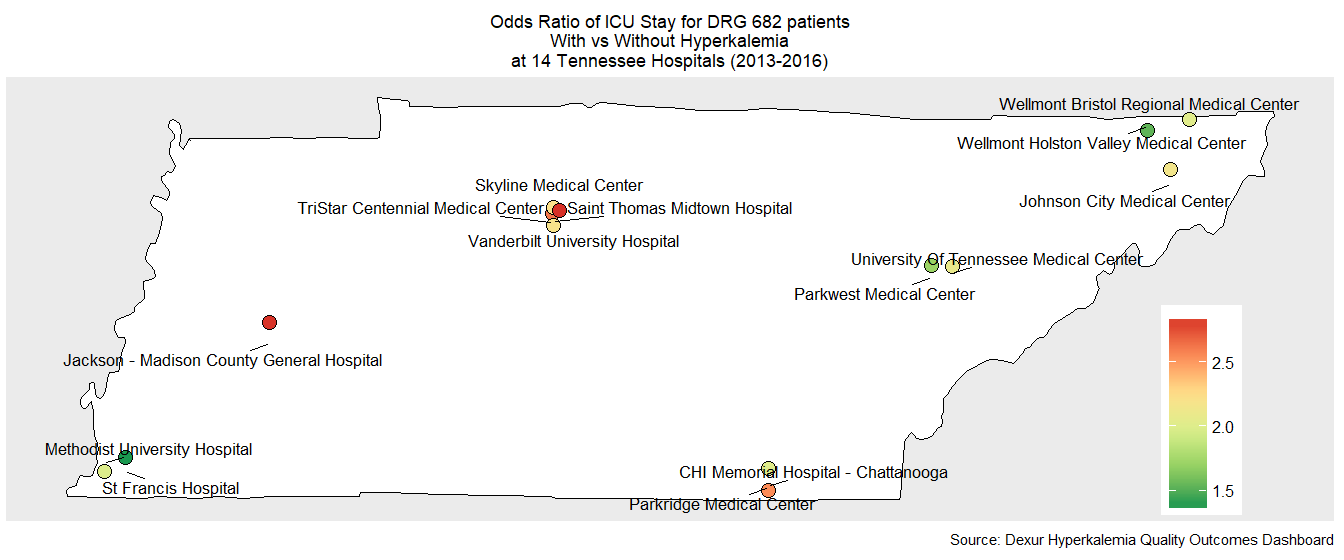
By: James Pitt May. 16, 2018
Hyperkalemia, an excess of blood potassium, is an electrolyte imbalance that is especially common in patients with heart failure or chronic kidney disease. Up to 6.35% of patients with HF or CKD have hyperkalemia. Dexur has previously reported on hyperkalemia and heart failure in Florida.
Read more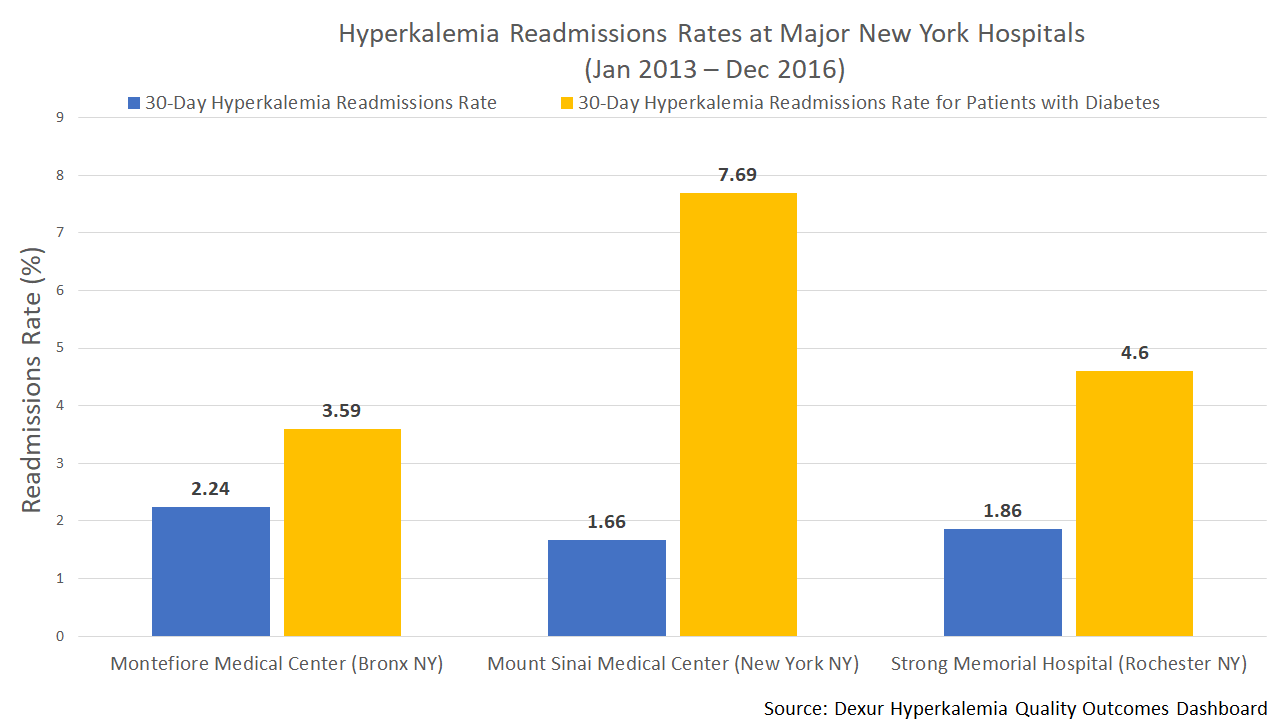
By: James Pitt May. 01, 2018
A Dexur analysis of CMS Medicare claims data at three New York hospitals shows that patients diabetes are 1.6 to 5 times more likely to be readmitted with hyperkalemia than the average inpatient. The analysis looked at data between Jan 2013 to Dec 2016 for Montefiore Medical Center, Mt. Sinai & Strong Memorial for patients hospitalized with diabetes hospitalized for diabetes (DRGs 637, 638, and 639) and compared the readmissions across all inpatients. The higher odds of readmissions for these three hospitals were consistent with state & national trends.
Read more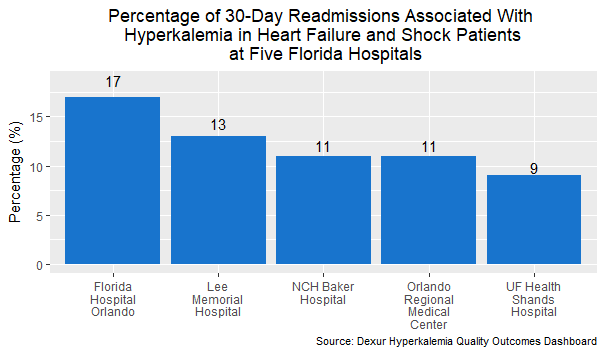
By: James Pitt Apr. 18, 2018
Veltassa (patiromer) is a medication introduced in 2015 that binds potassium in the GI tract in order to lower high blood potassium levels, a condition known as hyperkalemia. Hyperkalemia is often comorbid with chronic conditions, including cardiovascular disease. One reason for this comorbidity may be the use of renin-angiotensin-aldosterone system (RAAS) inhibitors, which are very common in heart failure treatments.
Read more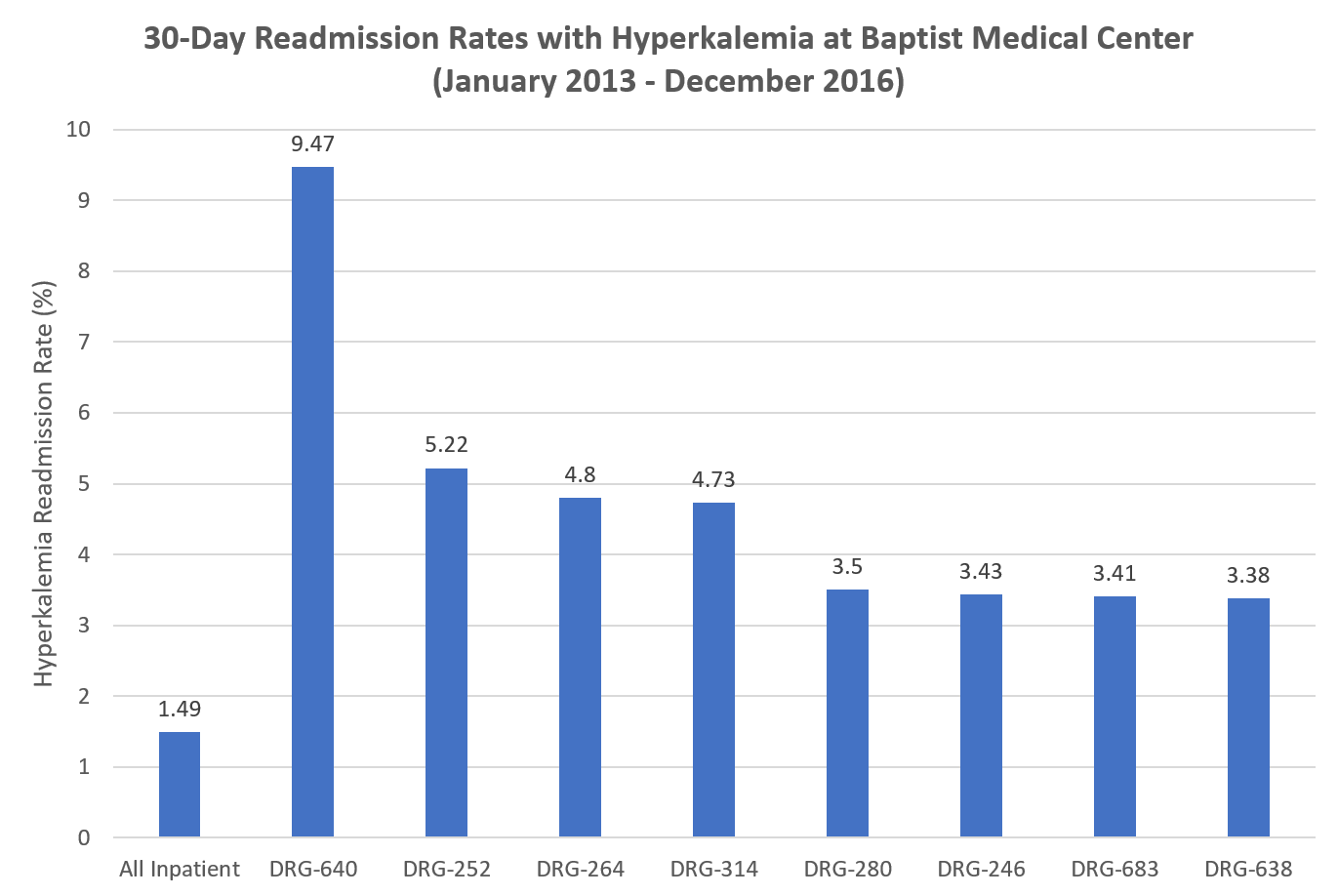
By: Jeffrey Maser Mar. 29, 2018
Veltassa (patiromer), by Relypsa, is a prescription medication taken to reduce high levels of potassium in a patient's blood, a condition known as hyperkalemia. Patients with chronic kidney disease (CKD) are especially at risk for hyperkalemia, as research shows the incidence of hyperkalemia as high as 40-50% in patients with CKD, compared to only 2-3% of the general population. CKD patients at the highest risk for hyperkalemia include those with diabetes, cardiovascular disease, advanced CKD, transplant recipients and/or those taking renin-angiotensin aldosterone system (RAAS) inhibitors. One caveat here is that the CKD patients who are treated with RAAS inhibitors are the same patients who benefit most from this treatment. Such information underlines the need for effective hyperkalemia treatments, especially in patients with CKD.
Read moreBy: Blair S. Walker Oct. 19, 2017
A properly-functioning human body relies on minerals capable of carrying an electric charge. Medical experts call these minerals `electrolytes’ and place potassium within this grouping.
Read more